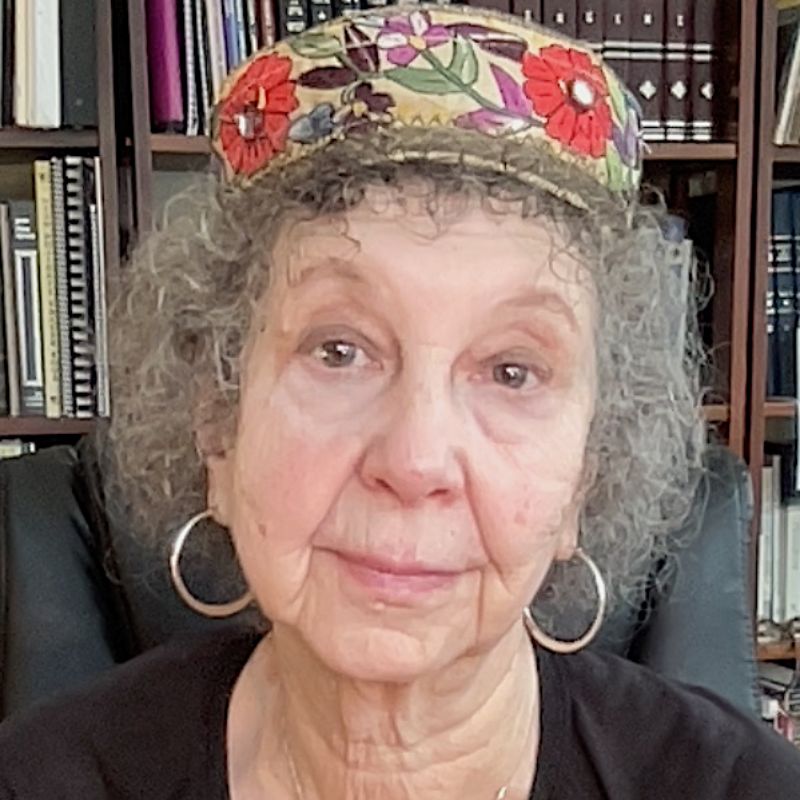When I was little, my grandmother, Ella Shapiro z”l (her memory be for blessing), often tucked me into bed. She sat on the edge of my mattress in the darkened room, and we talked. One time, I asked, “Bubbe, we are Jewish, so why don’t we go to synagogue?” She answered, “Some people go to synagogue and say nice things when they pray. Then they go out into the world and they lie, cheat, and steal. You can go to synagogue. But the most important thing is not what you say; it’s how you treat other people.”
This exchange with my bubbe — maybe I was 8 or 9 and she, in her mid-seventies — is an enduring teaching to me about both religion and public life. It still resonates today, six decades later, in Missoula, MT. Yes, we can repeat ethical maxims ad nauseam, but if we don’t act on them, our words are empty, and our lives are bankrupt of moral responsibility.
Mishpatim teaches that moral responsibility is a reflection of our covenantal relationship with the Divine.
“Moses took the blood and dashed it on the people and said, ‘This is the blood of the covenant that THE ETERNAL now makes with you concerning all these commands’.” (Exodus 24:8)
Notwithstanding that slave ownership and the patriarchal approach to virgin daughters are incongruent with our modern, western cultural practices, Mishpatim teaches a covenantal system that is intended to protect everyone in the community. It protects the livelihoods and spiritual integrity of community members by setting up consistent restitution for damages for all people within the society. The text spells out compensation for harm to the owners of livestock and cultivated land, as well as to the laborers who help maintain them. We learn about the protections for a slave, a virgin and her father, and a pregnant woman and her husband. The parshah teaches that formal justice must be free of influence from bribes or wealth status, and that even the stranger deserves protection. Further, we are exhorted to remain true to THE ETERNAL, eschewing other gods and observing Shabbat and harvest festivals. Underlying all is the principle that our human interactions are governed by rational needs, equitable considerations, and structured expectations that protect everyone equally.
When my bubbe taught me that actions are more important than formulaic pronouncements, I think she was talking about moral responsibility as expressed in Mishpatim. (Minus reference to the Divine. A confirmed secular Jew, she saw it as our duty as members of society to rein in harmful actions. Both she and her daughter — my mother — engaged publicly in the issues of their day, working toward a better world.)
Find more commentaries on Mishpatim.
So, let’s turn to my now-home state of Montana and consider regressive laws recently passed in our 2023 state legislature. An ascendant supermajority of extreme right-wing Republican legislators passed laws that revoked rights and freedoms from Montana residents. Under the guise of “protection” and “freedom of speech,” the new laws impose a theocratically driven worldview of right and wrong on all state residents.
The supermajority’s approach is not like the reciprocally protective, covenant-driven teachings of Mishpatim. Rather, it’s particularistic and harmful. The new bills are based on misinformation and discriminate against specific groups, such as pregnant people and queer youth.
Find more commentaries on Democracy.
One example is House Bill (HB) 361, signed into law, which permits teachers and students in public schools to use birth names and pronouns that trans students no longer use, i.e., their deadnames. The official description of the bill is to “Provide that use of a name and sex by a student is not discrimination.” In other words, it allegedly protects the student body at large from being “discriminated against” if they use the deadname either “accidentally” or as a result of “confusion” (according to the bill’s sponsor). This turns the meaning of discrimination on its head, protecting the majority from hypothetical oppression by a minority. It is a distortion of the ideal of protection expressed in Mishpatim, removing protections from one class of people — trans students — in favor of the so-called “free-speech rights” of those who reject trans and non-binary identities. It’s the opposite of my bubbe’s instruction, and to complete the absurdity, HB 361 is incompatible with the Montana State Code, which prohibits bullying in schools.
Despite the power of the legislative supermajority, the struggle for human rights in Montana is not over. I am part of four grassroots, independent efforts to counter extremism in both the legislature and executive branches of Montana state government: the Montana Human Rights Network, Truth to Power, the Montana Association of Rabbis, and the Montana Jewish Project (MJP). From our different perspectives, secular and faith-based, we continue to call out regressive policies that are masked by pious words. Through these efforts, I try to live up to my bubbe’s teaching.
Rabbi Laurie Franklin was ordained by ALEPH in 2019. She is a founding member of the Montana Association of Rabbis (MAOR–love that acronym!), board president of the Montana Human Rights Network, a convener of Truth to Power, part of the leadership team of the Missoula Interfaith Collaborative, and Rabbi Emerita of Congregation Har Shalom in Missoula, MT. She is a wife, mother, and grandmother and loves to grow vegetables, fix things, sing, and play bagpipes.


